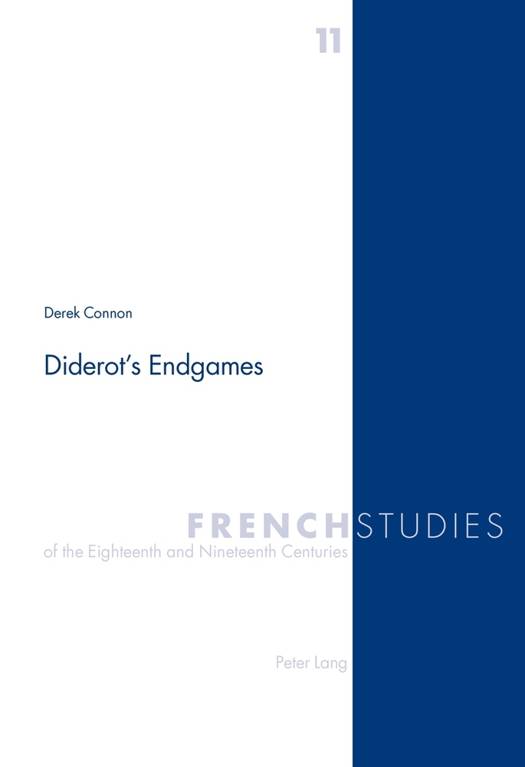
- Afhalen na 1 uur in een winkel met voorraad
- Gratis thuislevering in België vanaf € 30
- Ruim aanbod met 7 miljoen producten
- Afhalen na 1 uur in een winkel met voorraad
- Gratis thuislevering in België vanaf € 30
- Ruim aanbod met 7 miljoen producten
Zoeken
Omschrijving
One of the most remarkable features of Diderot's work is the refusal of closure in a large number of his texts which appears to leave philosophical, aesthetic or even narrative issues unresolved, and consequently invites a more active participation from the reader than more conventional works. Since it is in the nature of critical discourse to wish to answer questions, this aspect of the works has remained relatively unexplored, with some critics even choosing to ignore the questions asked by the endings in their efforts to give a specific and unambiguous meaning to texts that, in reality, seek to blur their meaning or even to avoid having one. This study addresses the problems posed by Diderot's endings directly, seeking through them to illuminate readings of the works as a whole. Hence it looks not just at the endings, but at what the endings can tell us about the complete texts, and how they are characteristic (or not) of the rest of the works.
Specificaties
Betrokkenen
- Auteur(s):
- Uitgeverij:
Inhoud
- Aantal bladzijden:
- 338
- Taal:
- Engels
- Reeks:
- Reeksnummer:
- nr. 11
Eigenschappen
- Productcode (EAN):
- 9783906768359
- Verschijningsdatum:
- 7/05/2002
- Uitvoering:
- Paperback
- Formaat:
- Trade paperback (VS)
- Afmetingen:
- 150 mm x 220 mm
- Gewicht:
- 479 g

Alleen bij Standaard Boekhandel
+ 192 punten op je klantenkaart van Standaard Boekhandel
Beoordelingen
We publiceren alleen reviews die voldoen aan de voorwaarden voor reviews. Bekijk onze voorwaarden voor reviews.











